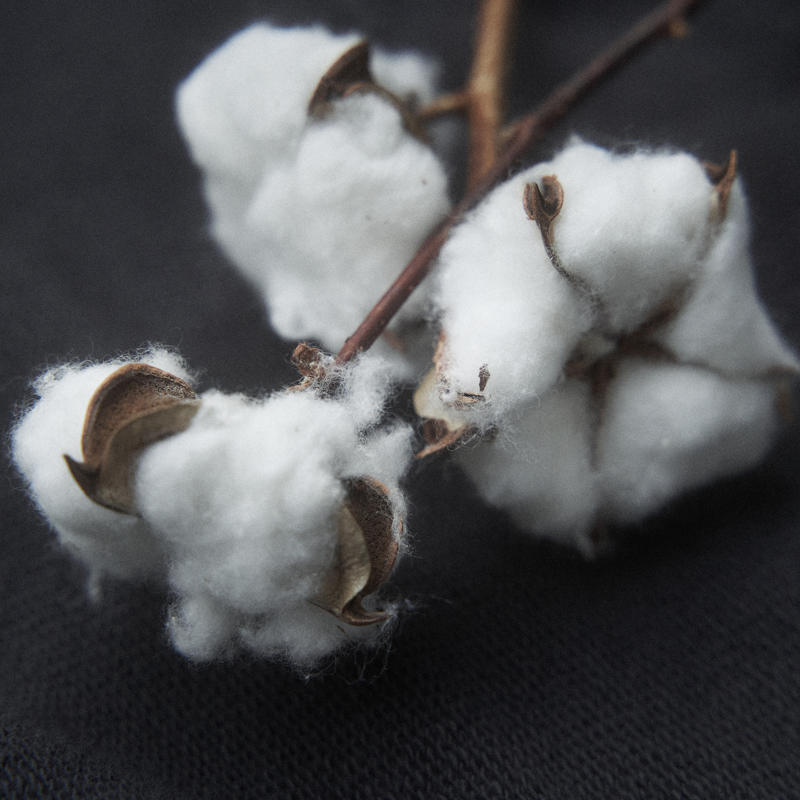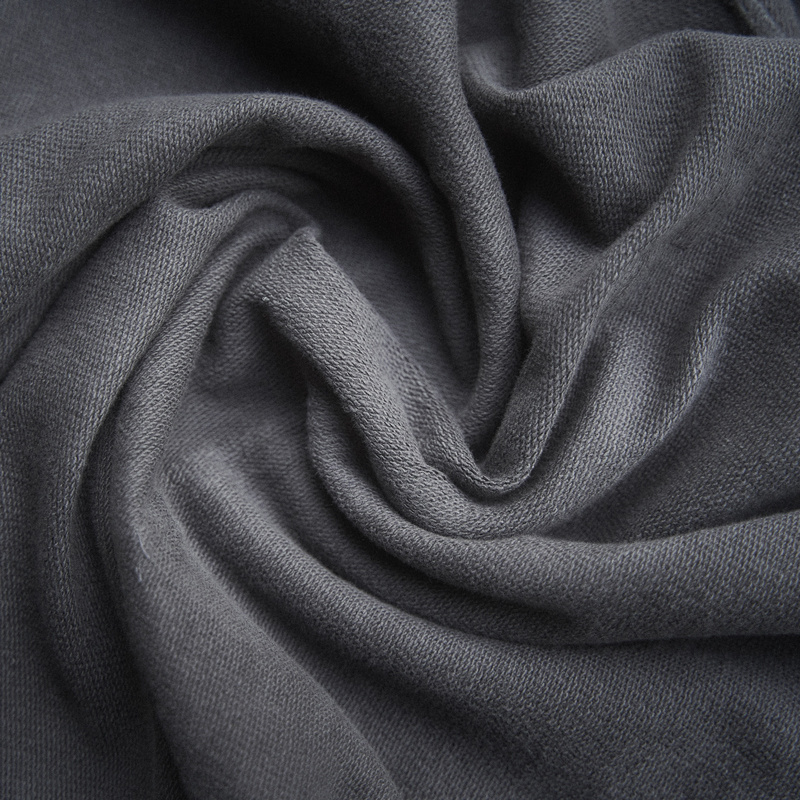Material Certified Origin
Synthetic garment releases microplastics that end up in our waters and oceans after washing. Garments made of plastic, which is hardly recyclable. We want to change that. At HØØD SEVEN we use almost exclusively natural and biodegradable fibers. The use of pure cotton gives our products a high quality that lasts for a long time. Unfortunately, since polyester cannot always be completely avoided, we use recycled polyester for this purpose in order not to pollute the environment any further.

Cotton
Through our certified partners, we can trace the origin of our collections right down to the cotton field. The conventional cultivation of cotton is a fairly toxic business – for both the cotton farmers and the residents of the plantations. Organic cotton, on the other hand, is grown according to strict ecological guidelines. Pesticides and chemical fertilizers must not be used. The water consumption is also considerably lower in comparison. With the purchase of organic cotton, HØØD SEVEN thus makes a contribution to the sustainable development of small farmers and, incidentally, to the preservation of biodiversity in the growing areas.

Fabric
The yarn is finally made in Portugal. The finished spun yarn will be woven into high-quality fabrics made from 100% organic cotton and dyed in our specially selected colors. Throughout the whole process, there are strict ecological guidelines about the used chemicals and their disposal. Industrial wastewater, that enters rivers and other bodies of water unfiltered, pollutes the environment as well as the food chain. In contrast to conventional fabric production, primarily the contaminated waste water has to be treated here. Social and labor law requirements are regularly checked by independent GOTS audits.
Printing
Our pieces are finished in Germany. We work with GOTS certified partners with whom we are in close contact. The printing inks used are verifiably certified according to GOTS criteria. Accordingly, all chemicals used must be included in the GOTS positive list. Environmentally friendly means that the individual raw materials do not exceed the limit values for harmful ingredients.

